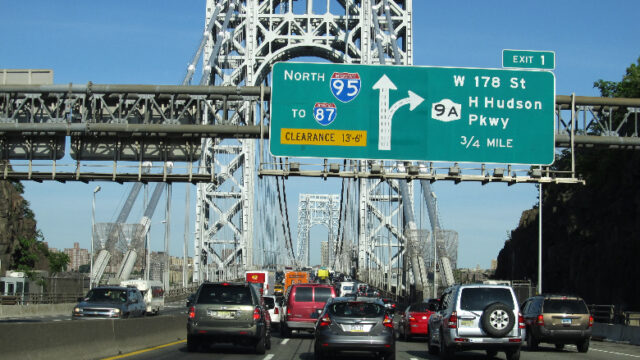Make Money Online

Vehicles driving on local streets south of 60th Street in Manhattan would have been subject to congestion pricing starting June 30, before Gov. Kathy Hochul said she was pausing implementation of the tolls.
Photo cropped from the original by Ken Lund/CC BY-SA 2.0
A little more than five months after the state of New York indefinitely paused a planned congestion pricing program intended to fund New York City’s transit agency just weeks before the tolls were scheduled to be implemented, Gov. Kathy Hochul is reportedly considering relaunching the program, according to multiple media reports.
The pause left in questions about $15 billion the tolls had been expected to fund transit projects such as the Metropolitan Transportation Authority (MTA) second contract of the $7.7-billion Second Avenue subway extension. It also severely impacted the overall MTA capital plan, forcing the agency to consider some harsh cuts for a system that was already recovering from pandemic-era drops in revenue.
The media reports say the rebooted plan could include a $9 base toll for passenger cars, a 40% reduction from the $15 in the plan previously approved by the MTA. Media reports, siting anonymous sources, say the base toll could eventually be increased over time. The MTA board could vote on the plan as soon as Nov. 20 and the program could be launched as soon as midnight on Dec. 29.
Hochul’s office and the MTA did not immediately respond to ENR’s request for comment.
“We happily welcome the news that congestion pricing will move forward,” Carlo A. Scissura, president and chief executive of the New York Building Congress said in a statement. “The details are still to come, but there simply never was in all these uncertain months, and never will be, a substitute for the funding that congestion pricing will provide our mass transit system and the benefits it will bring to our roadways.
“We desperately need investment in transit, and sustained, bondable funding is the only way we will accomplish the twin goals of critical state-of-good-repair work and bringing about the transformative projects of the future our state deserves like extending the Second Avenue Subway and connecting Brooklyn & Queens via the IBX. These projects will also provide thousands of good-paying jobs for many years.”
Scheduled to take effect June 30, the original plan would have added tolls of $15 for most cars during weekdays—the tolls would have been as high as $36 for certain trucks—on local streets below 60th Street in Manhattan. When she paused the program, Hochul said implementing the plan at that time “risks too many unintended consequences for New Yorkers” facing increased costs of living. She said adding another cost could prevent more workers from returning to the office in the city.
Equipment necessary to automatically record the cashless tolls was installed and ready to go as of the original planned start date in June.
Tom Wright, president and chief executive of the Regional Plan Association, said he would welcome the implementation of congestion pricing.
“This historic step is vital for New York and will support our regional economy, a healthy transit system, and improved air quality,” Wright said in a statement. “We look forward to working with Governor Hochul, the State Legislature and all stakeholders to advance this plan and deliver a stronger, greener and brighter future for millions of New Yorkers. Congestion pricing is a policy whose time has come.”










